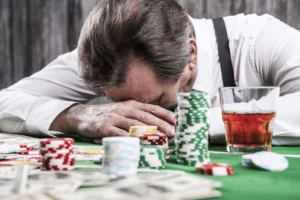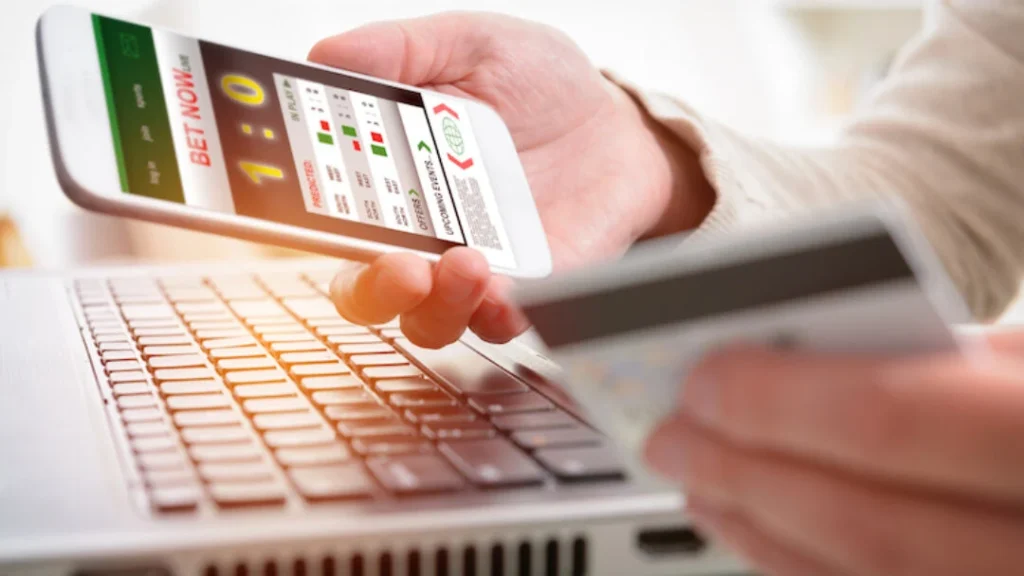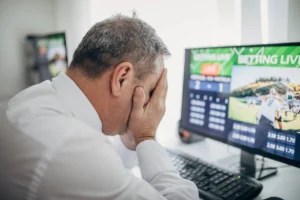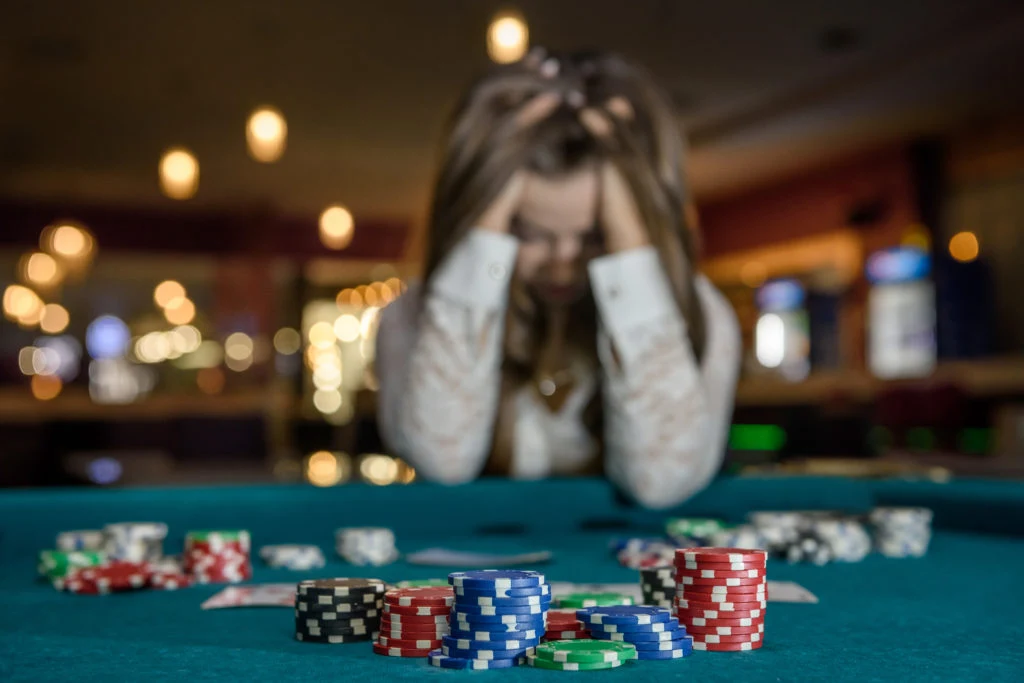Are you feeling trapped by the urge to gamble? If you’re finding it hard to stop, even though it’s causing problems, you’re not alone. There’s a way to break free.
In this blog, we’ll explore what causes gambling addiction and how it can mess up your life. We’ll also guide you through effective ways to fight back, from therapy options to practical tips and the support you can get from groups. Whether you’re dealing with this issue yourself or helping someone else, you’ll find clear, helpful information here to start on the path to recovery. Let’s take this step towards a better life together.
Contents
Understanding Gambling Addiction
 Gambling addiction, also known as compulsive gambling or gambling disorder, is the uncontrollable urge to keep gambling despite the toll it takes on your life. Unlike casual gambling, where a person might occasionally engage in betting with no significant negative consequences, gambling addiction involves persistent and recurrent problematic gambling behavior that leads to distress or impairment.
Gambling addiction, also known as compulsive gambling or gambling disorder, is the uncontrollable urge to keep gambling despite the toll it takes on your life. Unlike casual gambling, where a person might occasionally engage in betting with no significant negative consequences, gambling addiction involves persistent and recurrent problematic gambling behavior that leads to distress or impairment.
Here are some indicators to watch for:
- Behavioral Signs:
- Increasing amounts of money are gambled to achieve the desired excitement.
- Repeated unsuccessful attempts to control, cut back, or stop gambling.
- Restlessness or irritability when trying to stop gambling.
- Frequent thoughts about gambling experiences, whether past, future, or fantasy.
- Emotional Signs:
- Feelings of anxiety or depression when not gambling or when thinking about quitting.
- Using gambling as a way to escape problems or relieve feelings of helplessness, guilt, anxiety, or depression.
- Continuation or escalation of gambling despite the occurrence of negative consequences.
- Financial Signs:
- The need to borrow money or sell personal items to finance gambling.
- Unexplained debts or lack of financial resources.
- Financial desperation linked to gambling losses, including the urgency to return to gambling to recover losses quickly.
Understanding these differences and signs helps in identifying when enjoyable gambling crosses into the territory of addiction. Recognizing these symptoms can prompt the start of a journey towards recovery and management of the disorder, helping to reclaim control over one’s life and mend strained relationships and financial instability.
First Steps to Overcoming Gambling Addiction
 Realizing that gambling has become a problem can be a crucial moment. Acknowledging the issue is the first and perhaps the most critical step toward recovery. Here’s how to start addressing the problem and lay the groundwork for effective treatment:
Realizing that gambling has become a problem can be a crucial moment. Acknowledging the issue is the first and perhaps the most critical step toward recovery. Here’s how to start addressing the problem and lay the groundwork for effective treatment:
- Acknowledge the Problem: Accepting that gambling is negatively impacting your life is essential for making meaningful changes.
- Manage Finances: Take immediate steps to prevent financial damage. This might include setting strict budget limits, closing online betting accounts, or arranging for a trusted person to manage your finances temporarily.
- Change Routines: Identify triggers that prompt gambling urges and work on changing your routines to avoid these triggers. Finding healthier activities to replace gambling can also divert attention and energy toward more beneficial pursuits.
Taking these initial steps can be difficult, but they are crucial in building a solid foundation for recovery. Each positive action you take represents a significant stride towards regaining control of your life and moving towards a healthier future.
Therapy Options for Gambling Addiction

Effective treatment for gambling addiction often involves various types of therapy that address the underlying psychological aspects of the disorder. These therapies help modify behavior, manage emotions, and develop healthier coping strategies. Here are some of the most effective therapy options:
Cognitive-Behavioral Therapy (CBT)
Through CBT, individuals learn to challenge negative beliefs that trigger and sustain gambling behaviors and thought patterns and replace them with more positive and realistic ones. Skills taught in CBT include:
- Problem-solving: To manage issues without resorting to gambling.
- Impulse control: To resist urges to gamble.
- Emotional regulation: To handle emotions like stress and depression without gambling.
Motivational Interviewing (MI)
MI involves:
- Exploring the person’s own reasons for change: Therapists help individuals understand how their values and goals are compromised by their addictive behaviors.
- Building a commitment to change: Through gentle guidance and questioning, MI supports individuals in taking steps toward recovery.
Family Therapy
Gambling addiction doesn’t only affect the individual but also impacts their family and close relationships. Family therapy can be vital as it:
- Helps families communicate more effectively around sensitive issues like finances and trust.
- Helps address and heal conflicts that may have arisen or worsened due to gambling.
- Engages family members as a part of the recovery process, making them active participants in the journey.
Group Therapy
Group therapy provides a platform for sharing experiences and learning from others who face similar challenges with gambling. It offers:
- Peer support: Helps reduce feelings of isolation by connecting with others who understand the struggle with gambling addiction.
- Shared learning: Allows members to learn coping strategies and tips from each other’s experiences.
Other Therapeutic Approaches
Other therapeutic methods might also be considered, such as:
- Art Therapy and Music Therapy
- Mindfulness and Meditation
Each therapy has its strengths, and often, a combination of these therapies proves most effective. Personalizing treatment to fit the individual’s specific needs is crucial for effective recovery from gambling addiction.
Medication and Its Role in Treatment
 While there are no medications specifically approved to treat gambling addiction alone, medications are often used to address co-occurring disorders, such as depression or anxiety, which can contribute to or exacerbate gambling behaviors.
While there are no medications specifically approved to treat gambling addiction alone, medications are often used to address co-occurring disorders, such as depression or anxiety, which can contribute to or exacerbate gambling behaviors.
The following types of medications are commonly prescribed:
- Antidepressants such as selective serotonin reuptake inhibitors (SSRIs)
- Mood stabilizers
- Anti-anxiety medications
- Naltrexone
- Antipsychotics
Remember, it is crucial that any medication plan be managed by a doctor, particularly a psychiatrist familiar with addiction issues, to monitor effectiveness and manage side effects.
Since every individual’s situation is unique, treatment plans, including the use of medication, should be tailored to meet the specific needs and medical history of the individual.
Conclusion
Overcoming gambling addiction is a challenging journey, but you don’t have to face it alone. At QuitMantra, we understand the complexities of addiction and provide tailored support to help you regain control of your life. Whether you’re struggling with gambling or any other form of addiction, our trial therapy sessions and comprehensive deaddiction programs are designed to offer the guidance and tools you need for recovery. Visit QuitMantra today to book your session or join our program, and take the first step towards a healthier, addiction-free future.
